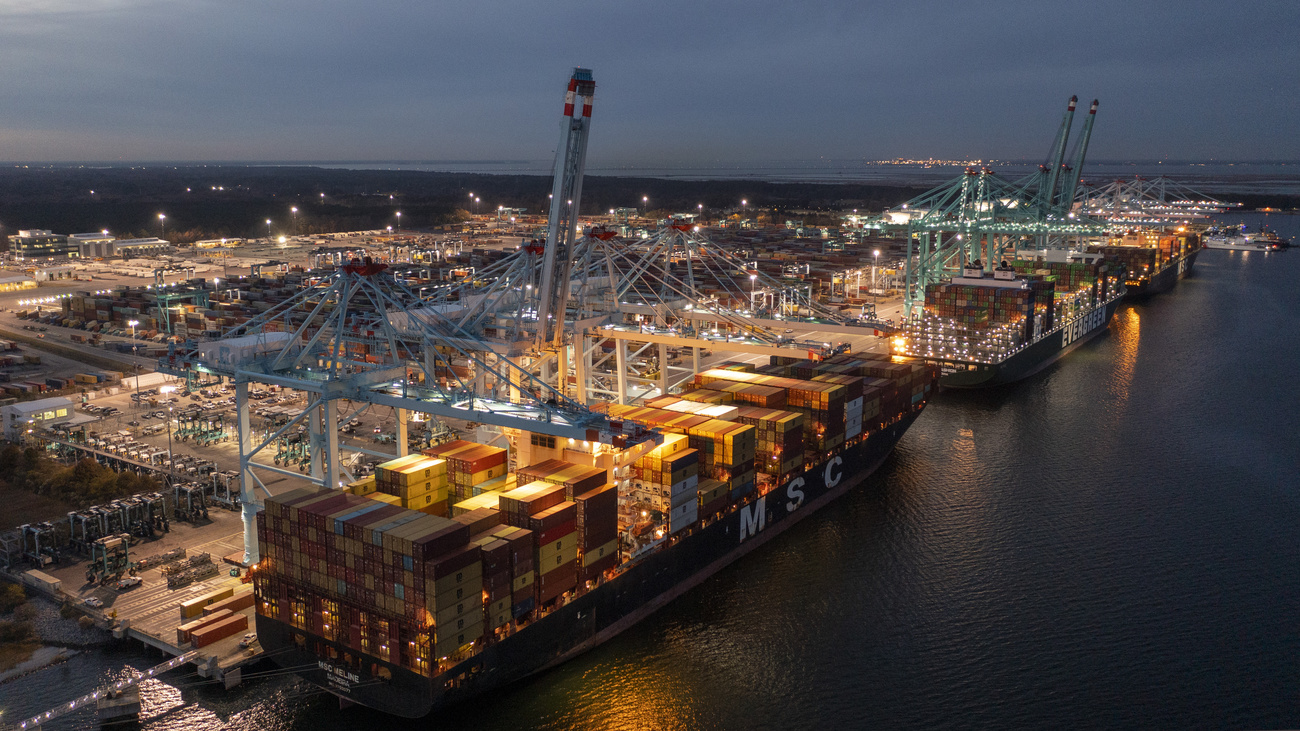
Opinion: more imagination needed in Swiss maritime strategy
Landlocked Switzerland is squandering its chances when it comes to the overhaul of shipping rules, writes Mark Pieth, an anti-corruption expert and co-author of Seefahrtsnation Schweiz (Switzerland as a maritime nation).
The current situation of the Swiss merchant fleet is relatively meagre: just 14 vessels, operated by two shipping companies, sail under its flag.
Most of the ships are getting on in years and represent what remains of a fleet subsidised by the federal government through joint security mechanisms. While they served their purpose in securing supplies in times of war and crisis, in the age of globalised shipping the model is outdated.
The government is presently – and rightly – weighing up a new basis on which to ground the Swiss merchant navy. However, as it does so, two issues which actually belong together are being treated separately: the new maritime strategy and the so-called tonnage tax. Under the latter, Swiss-based shipping companies will be able to bypass regular corporation tax by paying a flat-rate tax on cargo capacity and operating days, which means significantly lower tax intakes.

More
Mark Pieth: Switzerland must regulate its opaque shipping industry
Wrong models
The risk here is that Switzerland – which is not generally seen as a global maritime power – is simply copying what others have been doing better and for longer. However, the country will never be able to attract the same number of ships as “flags of convenience” like Panama, the Marshall Islands or Liberia – since Swiss environmental, safety and labour protection standards are so much higher.
It would also take a lot to really compete with European maritime nations such as Germany, Norway or the Netherlands. When it comes to taxation, Switzerland is trying – again, seemingly divorced from its overall maritime strategy – to run after the industry’s big players.
But there are real alternatives which would be both up-to-date and attractive, and which would involve latching onto efforts to make the global shipping industry carbon neutral.
The UN’s shipping body, the International Maritime Organization (IMO), is in the process of setting ambitious targets to this end, while ship engineers are working fast to develop alternative propulsion systems.
Swiss-based companies are leading the way. ABB and Liebherr, for example, are significant players in the efforts to convert large cargo ships to become wind-assisted. Traditional ship engine designers in eastern Switzerland (WinGD in Winterthur) are working on new propulsion systems using ammonia, methanol or hydrogen.

More
Flying the Swiss flag on the high seas
Grants to protect the ozone layer
Instead of offering an unmotivated tax gift to an industry which – with MSC or the shipping operations of commodity traders – is not deeply rooted in Switzerland, the tonnage tax could rather be integrated into the Swiss maritime strategy.
Such a step could more concretely propose that anyone who is prepared to sail a large part (around 60%) of its fleet under a Swiss or European flag – thus raising their environmental and labour standards above what’s required by flags of convenience – would also be subsidised by this tonnage tax, if they also pledge to use innovative propulsion systems.
In its current form, the tonnage tax supports the operators of “dirty ships”, even if they carry a flag from a low-cost location. Switzerland should use its subsidies in a targeted way to protect the oceans and the climate and to implement acceptable working conditions at sea.
The views expressed in this article are solely those of the author and do not necessarily reflect the views of SWI swissinfo.ch.






























